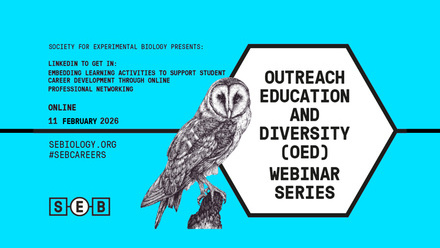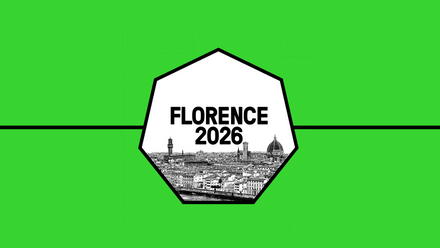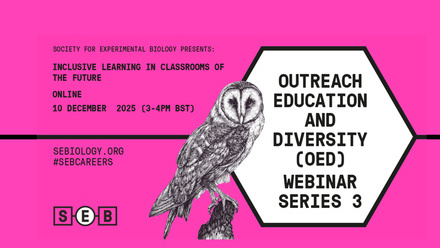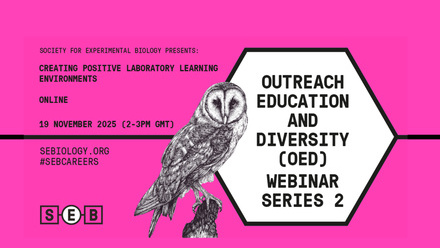Travel Grants to Go: From elements of historical and STEM experimental bioscience to modern interdisciplinary environmental education
The event “From elements of historical and STEM experimental bioscience to modern interdisciplinary environmental education”, organised by Marina B. A. Minoli, FRSB CSciTeach Professor, aimed to highlight and give examples of how inquiry-based science education (IBSE) methodologies and interdisciplinarity can contribute to promoting interest and passion for Biosciences.
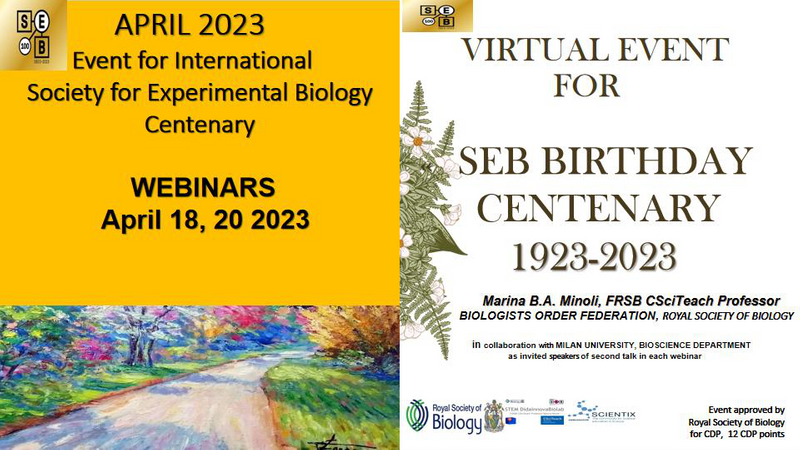
Organised as an online two-session, the event was featured in different scientific channels, approved by the Royal Society of Biology for 12 CPD (Continuing Professional Development) points, and achieved attendance and engagement expectations.
Each session comprised two talks.
Session 1:
- Talk 1: “Elements of historical natural science and reflective analysis for reasoning learning on modern environmental education” – speaker: Professor Marina B. A. Minoli.
- Talk 2: “Analysis of modern scientific research to study the physiological effects in the adaptation of plants in environmental stress conditions with experimental microscopic bioimaging” – speaker: Professor Alex Costa, Milan University.
Session 2:
- Talk 1: “The interdisciplinary approaches of Bioscience for Environmental STEM Education in critical thinking” – speaker: Professor Marina B. A. Minoli
- Talk 2: “Innovative research on the plant-insect relationship, on the plant-environment interactions with modern experimental approaches” – speaker: Dr Elisa Dell’Aglio, Marie Curie Prize, Milan University.
According to the organiser, Marina, “the risk actually is, in fact, that young generation and, in general, society are immersed in fragmented and partial information without impact with experimental studies and modern researches about physiological and biochemical effects of climate changes to understand why and how these effects.” With this in mind, the event discussed the importance and advantages of teaching environmental science based on experimental science approaches, including epigenetic, plant phenology and organism models studies (C. elegans and A. thaliana). Another approach discussed was the macro and micro botanical observations as a resource for teaching and learning and a presentation of ideas from scientists who were precursors of modern biogeoscience.
The invited speaker, Professor Alex Costa, presented studies on A. thaliana adaptation to environmental stress conditions, such as temperature and high salt concentration levels, particularly in calcium levels. Through dynamic fluorescent microscopic bioimaging, the researchers could assess calcium concentration in some parts of the plant. In the end, questions related to the main goals and challenges of the research and the effects of CO2 levels on the metabolism of plants were raised and discussed. This talk exemplified how environmental research can contribute to science engagement.
Dr Elisa Dell’Aglio, the invited speaker for the second session, presented researches on plant-insect relationship and about how plant-pollinator interactions are complex and their influence on conservation biology. This talk showed how experimental biology analysis can promote critical thinking.
As a result, the event brought an integrated overview of different ideas and projects of the past and present, promoting
"innovative and reasoned environmental education with interesting elements of modern experimental bioscience studies.”
About the SEB Birthday Grant
The SEB Birthday Grant was a special grant created to celebrate the SEB Centenary. The grant's goal was to assist applicants with the independent organisation at their own institutions of a scientific meeting, networking event, single lecture, or small events such as postgraduate research days to help celebrate the SEB centenary year. Applications for scientific meetings or events that were cross-institutional and regional and student-focused were looked upon more favourably.
Are you looking for funding to support your project?
Have a look at the Grants and Funding available.
*Thanks to the organiser for providing feedback for this article.

